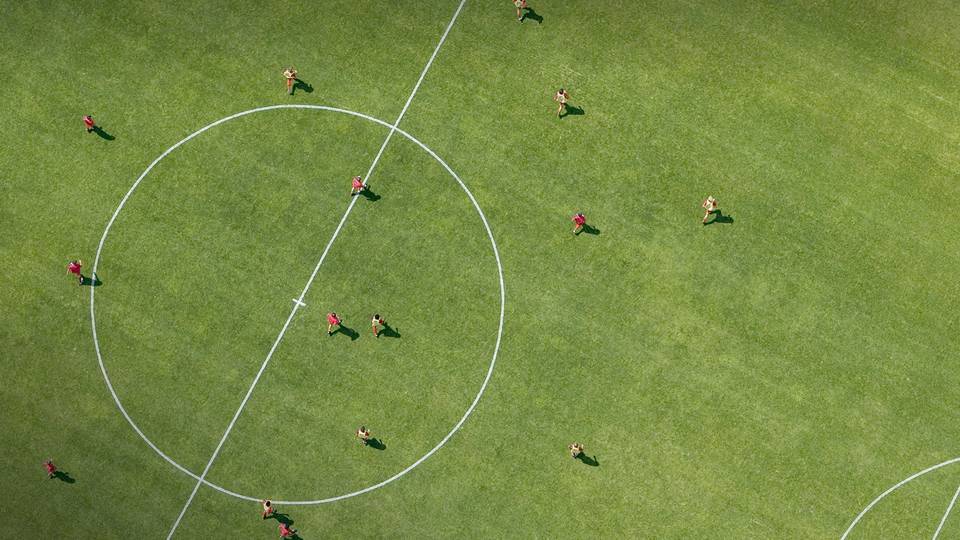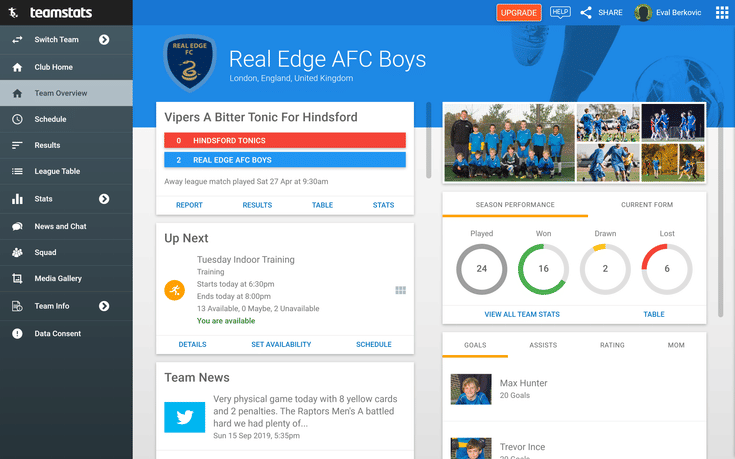Football coaching badges represent a structured pathway for individuals passionate about developing their coaching skills in the beautiful game. These qualifications, offered by organisations like England Football Learning, provide essential knowledge and practical techniques for coaching effectively at various levels. Football coaching badges are crucial for aspiring coaches as they validate expertise, enhance employment prospects, and ensure players receive quality instruction from qualified professionals.
The journey typically begins with introductory courses that cover fundamental coaching principles, safety practices, and basic tactical understanding. As coaches progress through higher-level badges, they encounter more advanced concepts, specialised training methods, and sophisticated strategic approaches. Each qualification builds upon previous learning, creating a comprehensive educational framework that supports continuous professional development.
For those looking to enter the football coaching world, these courses offer valuable hands-on experience alongside theoretical knowledge. They connect coaches with industry experts and provide opportunities to learn modern coaching methodologies that can be applied from grassroots to elite levels. While Americans might call it soccer coaching certification, in the UK these badges are recognised throughout the football community as essential credentials for anyone serious about coaching the sport.
Path to Becoming a Football Coach
The journey to becoming a qualified football coach involves structured learning, hands-on experience, and continuous development. This career path offers multiple entry points depending on one's background, with formal qualifications and practical experience both playing crucial roles.
Understanding the Coaching Pathway
In the UK, the Football Association (FA) provides a clear coaching pathway through a series of badges or qualifications. The journey typically begins with the FA Level 1 in Coaching Football, which teaches the basics of safe, inclusive, and engaging sessions. After gaining experience, coaches can progress to Level 2, which develops more technical and tactical knowledge.
The higher qualifications—UEFA B, UEFA A, and ultimately the UEFA Pro Licence—require significant time commitments and practical coaching hours. Each level builds upon previous knowledge while demanding higher standards of analysis, planning, and delivery.
Many aspiring coaches also benefit from mentoring relationships with experienced practitioners. The pathway isn't strictly linear; coaches often develop in different areas simultaneously through specialist courses in goalkeeping, futsal, or youth development.
Required Coaching Experience
Practical experience forms the backbone of coaching development. Most professional coaches begin at grassroots level, volunteering with local clubs or school teams. This hands-on experience is invaluable for applying theoretical knowledge and developing essential communication skills.
The FA coaching pathway requires documented coaching hours between qualification levels. For instance, coaches must typically log 100+ hours of relevant coaching before advancing from Level 2 to UEFA B licence.
Experience requirements become more specific at higher levels. UEFA A candidates need experience coaching competitive 11-a-side teams, while Pro Licence applicants often need professional or semi-professional coaching backgrounds.
Many successful coaches complement their football-specific experience with broader education in sports science, psychology, or management. This multidisciplinary approach helps coaches understand the physical, mental, and tactical aspects of the game.
Professional Coaching Qualifications
Professional football coaching qualifications offer a structured pathway for developing the necessary skills to lead at higher levels of the sport. These qualifications build progressively on foundational knowledge and require significant commitment to both theoretical learning and practical application.
UEFA A Licence
The UEFA A Licence represents a significant step towards professional coaching, typically following the completion of the UEFA B Licence. This qualification prepares coaches to work with senior teams and elite youth players. It covers advanced tactical concepts, leadership skills, and high-level technical training methods.
Courses typically run for 12-18 months and include residential blocks, mentoring sessions, and practical assessments. Candidates must demonstrate their ability to plan, deliver, and evaluate training sessions at an advanced level.
The A Licence focuses on developing match analysis skills, periodisation of training, and management of players. Successful candidates often pursue roles as first-team coaches at professional clubs or head coaches at semi-professional levels.
Requirements include substantial coaching experience and a minimum of 12 months holding the UEFA B qualification. The course costs between £3,000-£4,000 depending on the national association.
Coaching Certificate Levels
The football coaching certification structure in England follows a clear progression path. The FA Level 1 serves as the entry point, equipping coaches with basic skills for grassroots football. Level 2 builds on this foundation, preparing coaches for more competitive environments.
The UEFA B Licence marks the transition to more professional coaching. This qualification enables coaches to work with teams up to semi-professional level and youth academies. It requires approximately 120 hours of learning and assessment.
Beyond the B Licence, specialist qualifications become available, including youth modules, goalkeeper coaching, and futsal certifications. These allow coaches to develop expertise in specific areas of the game.
Each level requires increasing commitment of time and resources. Most certificates remain valid for three years, after which continuing professional development (CPD) is required for renewal. This ensures coaches stay current with evolving practices and methodologies in the sport.
Developing Practical Coaching Skills
Acquiring football coaching badges is only part of the journey. The application of knowledge through practical coaching skills is what truly transforms good coaches into great ones.
Designing a Coaching Session
Effective session planning is crucial for player development. Coaches should start by identifying clear objectives for each session, ensuring they align with the team's long-term goals.
A well-structured session typically includes a progressive warm-up, technical practice, game-related activities and a cool-down phase. Consider the age and ability level of players when selecting drills and exercises.
The STEP principle (Space, Task, Equipment, People) provides a useful framework for adapting sessions. Increasing or decreasing the space changes the intensity, while modifying tasks allows differentiation for varied ability levels.
Equipment should be prepared beforehand to maximise active participation time. Planning appropriate progressions ensures sessions flow naturally from simple to complex activities.
Learning Laws of the Game
Understanding the laws of football is fundamental for any coach. Beyond basic rules, coaches need to comprehend how rules are applied in different match situations and age groups.
The International Football Association Board (IFAB) publishes the official Laws of the Game annually. Regular review of these updates helps coaches ensure their knowledge remains current.
Practical experience through refereeing or attending officials' courses provides valuable insights into decision-making processes. This knowledge allows coaches to better prepare players for match situations.
Many coaching courses include assessment on the laws of the game. This reflects their importance in developing well-rounded coaches who can instruct players properly on matters from offside to handball interpretations.
Building relationships with local referees can provide opportunities for clarification on rules applications specific to local competitions and leagues.













